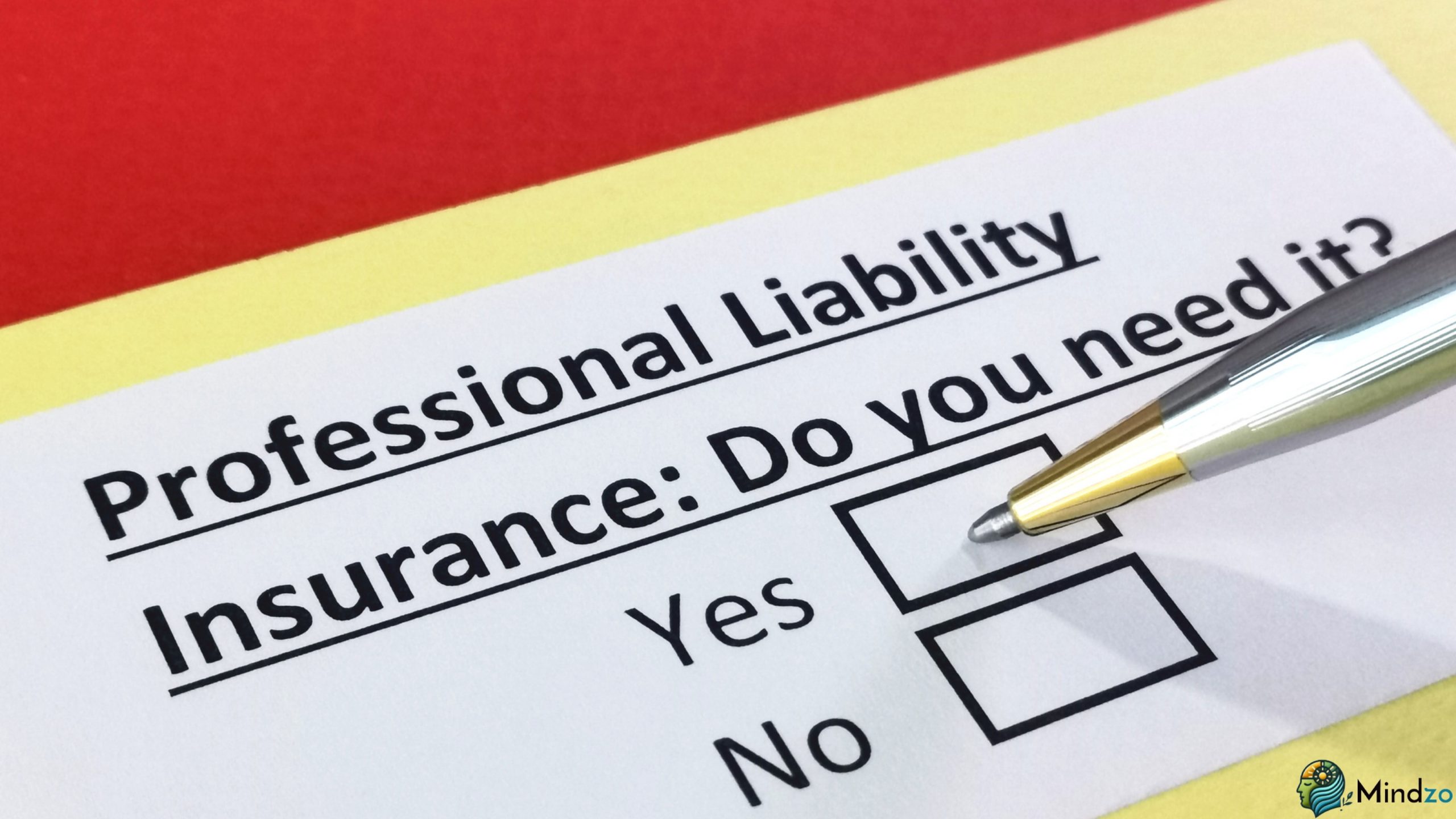Do You Need Malpractice Insurance as a Therapist or Psychiatrist? Absolutely. Here’s Why

The mental health field has a lot of responsibilities. Therapists and psychiatrists engage with people who are vulnerable every day. They make important clinical judgments and deal with difficult ethical circumstances. Your main goal is to help patients heal and grow, but in today’s healthcare system, you also need to defend yourself professionally and financially. Malpractice insurance, often known as professional liability insurance, is not just a good idea for mental health professionals, it is critically necessary.
Understanding Mental Health Professional Liability
Mental health malpractice insurance is very important since it protects you from accusations of professional negligence, mistakes, or omissions in your therapeutic practice. Professional liability insurance is different from other types of insurance since it is made to protect therapists, psychologists, psychiatrists, and other mental health professionals against the specific hazards they confront every day.
The stakes are really high when it comes to mental health therapy. You’re working with people who are going through crises, making judgments regarding involuntary commitments, giving people drugs that can have major negative effects, and people who may not be able to think clearly. No matter how skilled you are as a clinician or how good your intentions are, each of these situations comes with risks that could lead to legal action.
The Harsh Truth: Mental Health Malpractice Claims
A lot of mental health professionals wrongly believe that malpractice lawsuits mostly target doctors who do surgery or provide drugs. This idea is completely wrong. Therapists and psychiatrists are at risk of many types of liability that can lead to expensive litigation and damage to their careers.
Mental health providers are often accused of not properly assessing suicide risk, having inappropriate dual relationships, breaching confidentiality, sexual misconduct, treating children poorly, making prescription mistakes, and not getting fully informed permission. Even baseless charges can cost you a lot of money in legal fees, lead to investigations by the licensing board, and hurt your professional reputation.
Defending against malpractice lawsuits can have a huge effect on your finances. Even if your case is thrown out or settled in your favor, the legal fees alone can easily add up to tens of thousands of dollars. If you don’t have the right insurance, these payments will come directly from your own money, which might put your house, savings, and future finances at risk.
Different Risks That Mental Health Professionals Face
Therapists and psychiatrists have different liability risks than other healthcare providers. The close nature of the therapeutic connection makes it more vulnerable, so it needs particular insurance coverage.
One of the most important concerns in mental health practice is claims connected to suicide. If a patient tries or succeeds in killing themselves, their family may sue, saying that the doctor didn’t do enough to assess the danger, didn’t give the right therapy, or didn’t take the right safety precautions. Even if you’ve done everything right, battling against these emotionally charged charges requires a lot of legal help.
If you break confidentiality, even if you don’t mean to, you could face a lot of legal trouble. In the digital age we live in, electronic health records, email, and telemedicine platforms make it easier for people to violate privacy. Professional liability insurance protects you from lawsuits that come from sharing patient information without permission.
Allegations of boundary violations and dual relationships are another big concern. It is important to be attentive about professional limits in the therapeutic relationship, because misunderstandings or false charges can swiftly turn into major legal problems. Your malpractice insurance protects you from these complicated social situations in a big way.
Administrative Proceedings and Investigations by the Licensing Board
Professional liability insurance protects you from more than just civil lawsuits. It also covers licensing board inquiries and administrative processes. State licensing boards can look into complaints, punish people, and even take away their professional licenses. These legal actions can hurt your career just as much as civil lawsuits can.
If you get a complaint from a licensing board, you need a lawyer who knows the administrative process and can fight for your rights. Professional liability insurance usually covers the costs of defending yourself in these cases, so you can be sure you have the right legal help when your license is on the line.
The administrative hearing process can be long and complicated, with a lot of paperwork, witness testimony, and expert opinions needed. If you don’t have the right insurance, the expenses of defending your license can quickly add up, and you could have to accept punishment that you could have fought successfully.
Coverage Issues: Working for Someone Else vs. Working for Yourself
Your practice setting will have a big impact on the kind of malpractice insurance you need. Mental health practitioners who work for hospitals, community mental health centers, or big healthcare companies may be covered by their employer’s liability coverage. But this coverage typically has big gaps and might not adequately safeguard your own interests.
Most of the time, employer-provided coverage only covers things you do while you’re working. You could not be covered for any services you do outside of your main job, such consulting, supervising, or running a private practice. Also, employer plans may not cover licensing board actions at all, or they may only cover a certain amount that isn’t enough in critical circumstances.
People who work for themselves or in private practice must have their own professional liability insurance. If your company doesn’t protect you, you’re fully exposed to all the risks of malpractice that come with working in mental health. The cost of individual coverage is very low compared to how much money an uninsured claim could cost you.
Things to think about when doing teletherapy and digital practice
Teletherapy and digital mental health services are growing quickly, which has introduced new liability risks that typical malpractice insurance may not cover well. There are specific hazards that come with online treatment sessions, digital mental health apps, and remote psychiatric consultations that need to be taken into account while getting insurance.
Some of the risks that come with technology are security breaches on platforms, technical problems during crisis interventions, problems with interstate licensing, and problems with emergency response protocols. Your professional liability insurance should cover telemedicine activities and other new areas of practice that are becoming more popular.
As teletherapy changes, insurance providers are coming up with more complete digital practice coverage choices. Make sure that your telehealth activities are clearly covered by the policy you choose and that the insurance company knows how hard it is to provide mental health services over the phone.
Key Policy Features for Picking the Right Coverage
There are different types of professional liability insurance, and mental health professionals require coverage that is made just for the risks that come with their work. When you look at different insurance plans, there are a few important things to keep in mind.
Limits on coverage show how much your policy will pay for claims and legal defense costs at the most. Higher limits mean higher premiums, but the extra cost is small compared to the protection you get. Most experts say that the minimum coverage limits should be $1 million per event and $3 million total. However, many professionals choose even higher levels.
It is very significant what the policy says about what services are covered. Make sure that every part of your business is clearly covered, such as individual therapy, group sessions, psychological testing, consultation services, and any other types of treatment you offer. Exclusions might leave you with dangerous gaps in coverage that make you very liable.
Prior actions coverage, which is often called retroactive coverage, protects you from claims that come up because of services you supplied before your current insurance went into force. This coverage is important when switching insurance companies or starting a new policy because malpractice claims can come up years after the event in question.
The Cost of Being Safe vs. The Cost of Being Exposed
Many mental health professionals are hesitant to buy malpractice insurance because they are worried about the expense. This is especially true for individuals who are just starting out in their professions or who work in community mental health settings where they don’t make much money. But professional liability insurance is really cheap compared to the money you could lose if you don’t have it.
Depending on your specialty, where you work, and how much coverage you need, mental health professional liability insurance costs between a few hundred and a few thousand dollars a year. This small amount of money could shield you against litigation and licensing board proceedings that could destroy your career and cost you millions of dollars.
Think about the other side: even if you win, a single malpractice case might cost you more than $100,000 in legal fees. Settlement fees or bad rulings might cost millions of dollars. If you don’t have insurance, these payments would come straight from your own money, which could lead to bankruptcy and destroy your career.
More than just financial protection: professional help and peace of mind
Professional liability insurance does more than safeguard your finances, it also gives you piece of mind and professional support that lets you focus on taking care of your patients without worrying about getting sued. Good insurance companies offer risk management tools, ongoing education, and expert advice that can help keep claims from happening in the first place.
Many rules include access to legal hotlines where you can talk to lawyers about possible danger circumstances before they turn into formal complaints. This proactive help can help you deal with tough clinical situations, keep accurate records of tough cases, and use the right risk management techniques.
Having full professional liability insurance has many mental health benefits that can’t be understated. When you know that you are well protected against the risks that come with working in mental health, you can do your job with confidence, take the right clinical risks when they are needed, and keep the therapeutic relationships that are necessary for effective treatment.
Being responsible at work and protecting yourself
As a mental health professional, your job is to help people through the hardest times of their lives. Your dedication to healing and your professional knowledge are two of the most important things you can do for society. But in today’s litigious healthcare environment, being professionally competent isn’t enough to insulate you from the legal and financial hazards that come with working in mental health.
Professional liability insurance is an important part of running a professional business. It is your professional duty to defend yourself and your practice with full malpractice insurance, just as you keep your clinical skills up to date through continuing education and stay up to date with best practices in your field.
The question isn’t if you can pay for professional liability insurance, it’s if you can afford to practice without it. The little expense of coverage is nothing compared to the huge financial and professional problems that can come from facing a malpractice claim without it. You should know that your career and financial future are safe, and your patients deserve the best care possible.
Don’t wait until it’s too late. It’s not simply a good business move to have professional liability insurance, it’s a must for any mental health professional who wants to safeguard their practice, their patients, and their future.
-
 Beyond Words: The Emotional Medicine of a Simple HugOctober 27, 2025
Beyond Words: The Emotional Medicine of a Simple HugOctober 27, 2025 -
 Music’s Unique Therapeutic BenefitsOctober 23, 2025
Music’s Unique Therapeutic BenefitsOctober 23, 2025

Leave a Reply